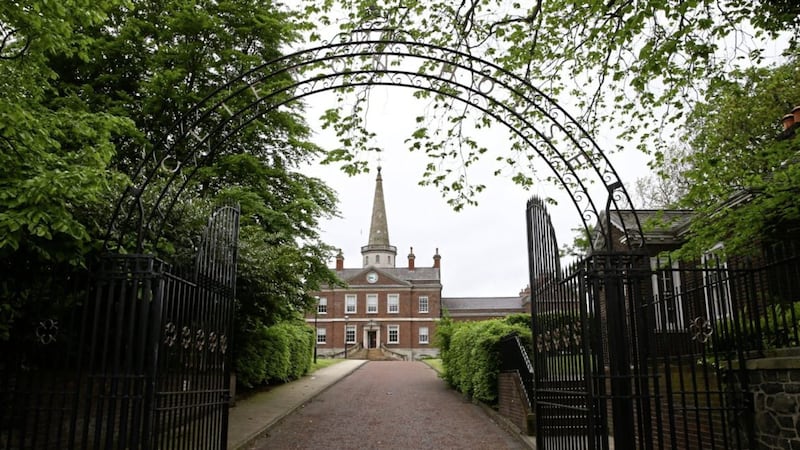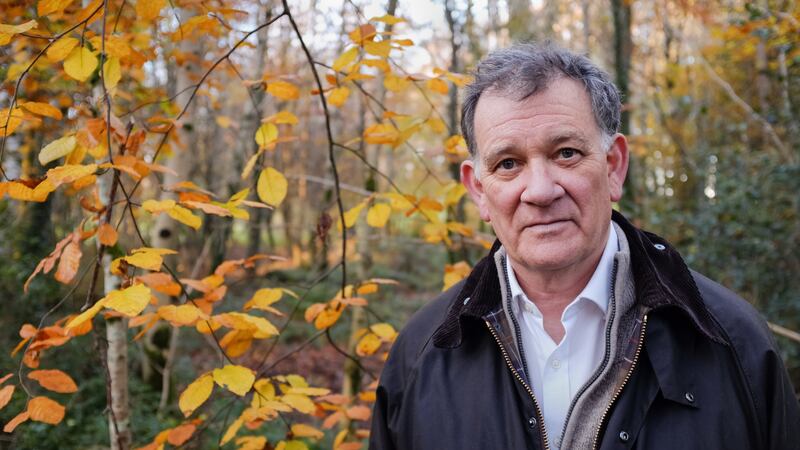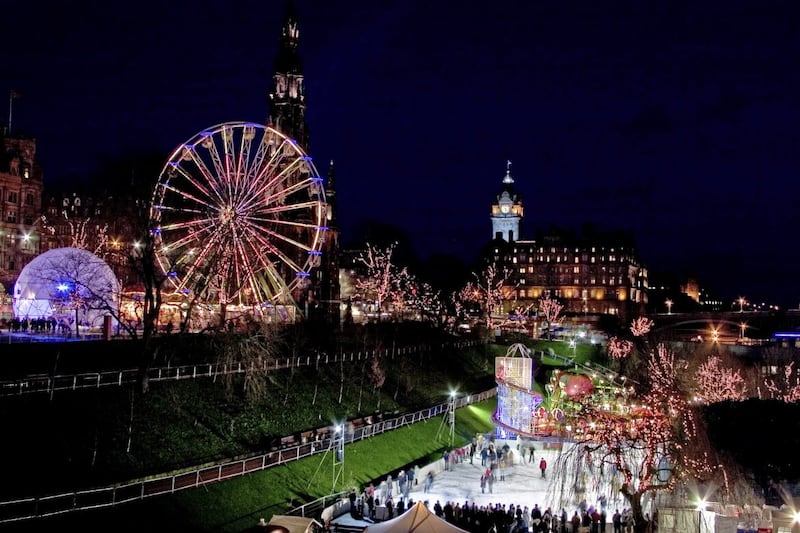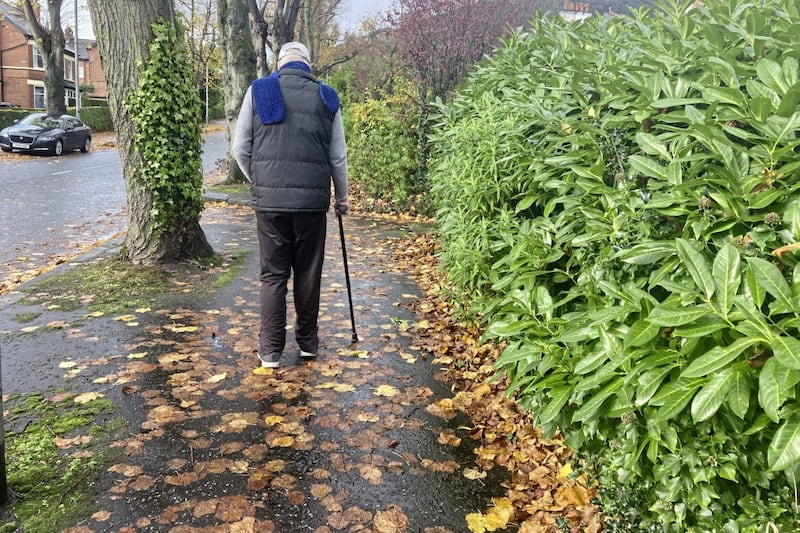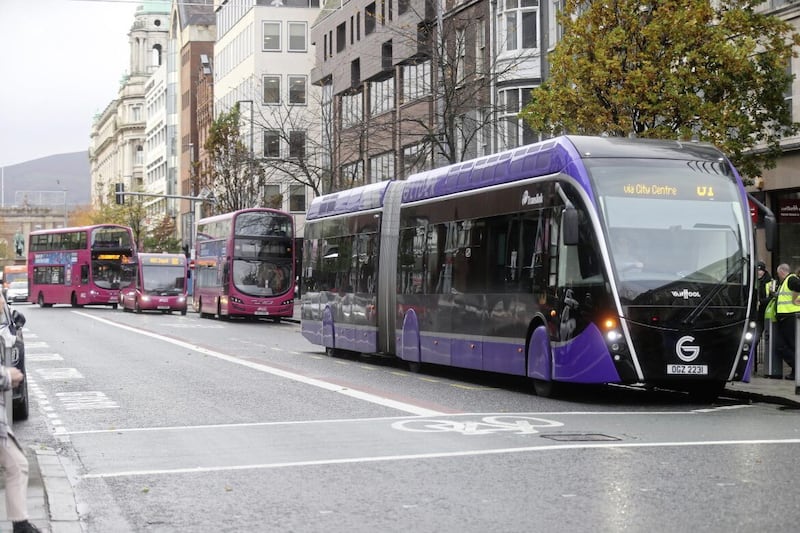IMAGINE a little girl of eight sitting in the confines of the Poor House, sewing clothes for destitute children. Picture this in the dark days of 1778 when beggars and vagabonds, lone women and orphans roamed the filthy and dangerous streets of Belfast.
So awful was the situation that a group of prominent businessmen and women of influence realised the need for a safe dwelling for these unfortunates so a poor house and a hospital was planned.
Eventually, by lottery, the money was raised and Clifton House was built. The little girl was Mary Ann McCracken, whose family were at the forefront of setting up this 18th century Grade A listed building, today the city's oldest working building and with a history to go along with it.
The house opened in 1778 with seven beds for the sick, four double beds for sturdy beggars, 22 double beds for the poor and four single bed for vagrants, and the numbers grew. History tells us ‘inmates’ had to work for their living. They tended the vegetable garden and harvested the potatoes, looked after the livestock and collected the eggs, they spun thread and wove clothes, cobbled their own shoes and even made their own coffins.
The water supply was brought by elmwood water pipes still on display today and the roof of Bangor Blue slates was held together by copper nails. The clock is one of only four in the UK.
As she grew up Mary Ann was very involved in this iconic building, managed by the Belfast Charitable Society. Founded one Friday night in The George Inn, a hostelry in downtown Belfast, the men round the table were wealthy and anxious to improve the unfortunates of the thriving city. Among them was Waddell Cunningham, who owned sugar refineries in the West Indies, Thomas McCabe a jeweller in North Street, the McCracken family, trading in wine, and later the Joys who were paper producers.
The Chief Executive Officer of the Society, Paula Reynolds, explained Mary Ann’s background.
“Her parents, Ann Joy and Captain John McCracken, saw that Mary Ann was well educated and she grew into a fine young woman who enjoyed balls and assemblies but helping the poor was her most important duty and she devoted her life to serving those less well off and in need of support.”
Henry Joy McCracken
She was involved in pressing social issues and in politics, supporting her brother Henry Joy McCracken, a founding member of the Society of United Irishmen, travelling to Dublin to visit him when he was held in Kilmainham jail.
Eventually, back in Belfast, he was put on trial for his part in the Battle of Antrim and despite her efforts to have his court marital dismissed, in July 1798 he was sent to the scaffold with a weeping Mary Ann by his side.
Hers is a complex and fascinating story but at the heart of it is a woman who cared about her fellow man. There are those who say she isn’t well enough remembered in history, for educating children, providing them with musical instruments. Indeed many of the boys went on to apprentice to the military bands. She and her ladies committee battled with the men’s committee for funds to provide healthy foods, shoes, soap and candles so children could study in the evenings; they even talked them into building a playground.
With Mary Ann at the forefront, the Belfast Charitable Society based in Clifton House nourished the children, gave them religious instruction and contracted them out to merchants or to the big houses where they served their apprenticeship, trained as lady's maids and gentlemen’s gentlemen.
The Belfast Charitable Society of 2019 is still in the business of service to the community, especially in north Belfast. Their work is philanthropic, supporting schools and organisations including Northern Ireland Hospice, Care for Older people, Age NI, North Belfast Heritage Cluster and the recent establishment of the Mary Ann McCracken Foundation will give her her rightful place in our history.
“The foundation was set up to advance the education of the public about the life and works of Mary Ann McCracken, a leading social reformer and philanthropist,” Paula explained. “In the spirit of the legacy and her work, it sets out to examine issues closest to her heart in a modern context from poverty to modern slavery, human rights and equality.”
Expect to hear much more about this fascinating woman through workshops, lectures, cultural activities and challenging conversations, and of course by visiting the Clifton House Heritage Centre, located at 2 North Queen Street in Belfast.
:: More at cliftonbelfast.com
THE RED BOX
SURELY Mary Ann would have approved the Red Box Project which aims to provide free menstrual products for female students across all South Eastern Regional College campuses.
The students union are behind this latest endeavour in their area, part of a project that was established in 2017 in Portsmouth and is now in schools and colleges all over the UK.
I was staggered to hear that locally one in 10 teenage girls has, at some point, been unable to afford sanitary products and have missed school as a result. Thankfully this is being addressed with a growing number of donation boxes throughout Northern Ireland which are filled with towels and tampons readily and freely available.
‘Period Poverty’ should not be an issue in this day and age so it’s important to support Red Box either with products or with a monetary donation and so prevent young women's embarrassment and the risk to them disrupting their education.
The Red Box Project information is available on the internet and by going to their location page you’ll find out what support there is In schools and colleges in Northern Ireland and how you can contribute. If you have a food bank near you, they too will welcome sanitary products.

